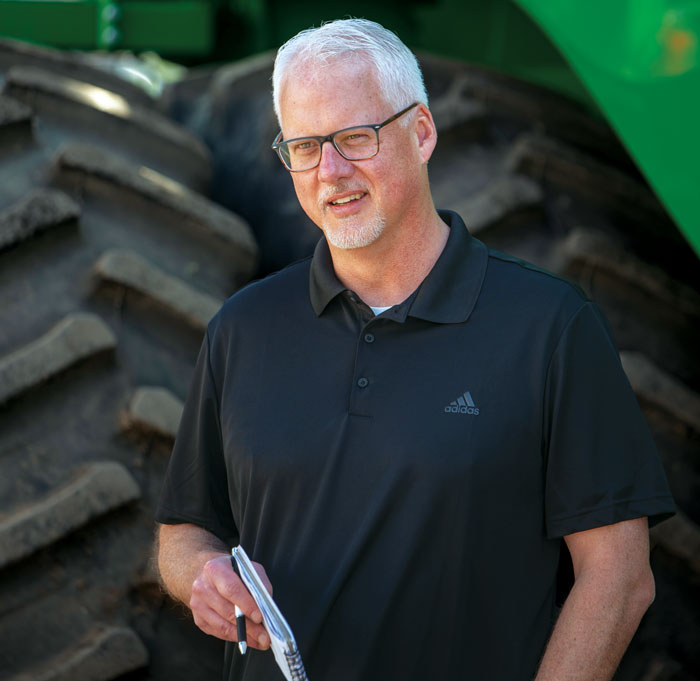Last week, I had several discussions about society’s supposed preference for the underdog. And also how the "general public" apparently possesses far more knowledge on every topic under the sun; far more than those in the know, who do the work and make the smart decisions every day. And more than the same folks who aren’t rushing to “be right” in the media, because they understand most real solutions aren't simple. That is, there’s a winner and a loser in virtually every politician's and regulator’s “chess moves.”
But John Q. Public’s knowledge of which party is the “little guy” or “underdog” is no better than its ability to process science, economics and the broader macro-level picture.
So I was pleased to see farmer Blake Hurst’s opinion piece, “Roundup Lawsuits Pose a Threat to My Missouri Farm” published as the “Cross Country Opinion” in the September 14, 2024 edition of The Wall Street Journal. A no-till farmer in Tarkio, Mo., Hurst shares a perspective that needs to be told about Roundup and its incredible significance to food production since getting cleared for ag’s use in the mid-1970s.
Today, the public wants to keep the “evil empire” Monsanto/Bayer in its sights, with little thought given to what happens if the government declares proven and necessary farm technologies off-limits to those who need them to survive.
Unfortunately, Hurst is one of the few in the trenches that speaks up. He talks about the blessing that the herbicide has been to agriculture, and mankind, for nearly half-a century. Yet “it’s also been a boon to trial lawyers who have made a career and a fortune from Roundup litigation,” he says.
He shared how glyphosate has been cleared as a carcinogen again and again, save one international group that doesn't understand science well enough to remove the words “potential risk” from glyphosate and several hundred other compounds. He also shared Bayer’s withdrawal of the herbicide for consumer use —from hardware and big box store shelves —a move made to avoid endless litigation as the ambulance-chasing lawyers recruit more “victims” on TV ads. And what did we get?
We got replacement chemicals “that are harsher, more toxic and more likely to drift and cause damage to surrounding vegetation,” Hurst says.
Hurst uses Roundup on every acre of his corn and soybean farm and calls it a vital part of his efforts to protect crops, soil and the environment.
The thought of farming pre-Roundup remains in Hurst’s memory — bad memories. He describes the miserable and wasteful “bean-walking” days with a hoe in hand that everyone ever asked to control weeds in that way never wants to see again. Those days ended, he says, once soybeans were genetically modified to be resistant to Roundup. “It was a technological change that freed thousands of farmers from weeks of mind-numbing and back-breaking labor every year.”
In short order, Hurst learned that Roundup could be substituted for tillage before crops were planted, which ended the need for repeatedly drag tillage tools and accumulate wasteful tractor hours. “Over the years, no-till farming improved soil health and saved us millions of tons of soil and thousands of gallons of fuel,” he says, though we at No-Till Farmer believe his numbers are understated. “Those savings have been repeated on thousands of farms like ours.”
“He talked about the blessing that the herbicide has been to agriculture, and mankind, for nearly half-a century. Yet it’s also been a boon to trial lawyers who’ve made a career and a fortune from Roundup litigation.…”
In his op-ed, Hurst shares his concern of lawmakers in the “Show-Me State,” and points to the lip service being “paid to the ‘little guy,’ even if that means ignoring science, economics and common sense.”
He adds that “If farmers lose the ability to use a beneficial technology because of one bad scientific report and the efforts of lawyers willing to mislead cancer patients, then no technology is safe. The U.S. economy will continue to suffer from out-of-pocket tort costs that are around 2% of gross domestic product. Who knows what new ideas and products were never tried or developed because of the threat of product liability lawsuits?”
The labeling issue and warnings of risks where they don’t exist — harmful and useless to everyone except the trial lawyers he says — may end up at the Supreme Court.
“The courts may help preserve farmers’ access to Roundup, but that desirable outcome is a long way away. If the Supreme Court doesn’t help, consumers can plan on spending a lot more on food.” As for Hurst and countless other farmers, that will also mean the return to backbreaking hoe work and a generation of conservation work undone.
I’m reminded that the real losers in any “David vs. Goliath” fight isn’t readily evident to those shouting the loudest. In most of the debates we find ourselves in these days, the uninformed villagers charging ahead with pitchforks and torches should be careful what they wish for. You might remember the words of Pogo: “We have met the enemy, and he is us.”
Speak up. Your side of the story and what is needed for you to grow food – as the most noble of contributors to society – needs to be told, even if one neighbor at a time. No one can do it better than you.






